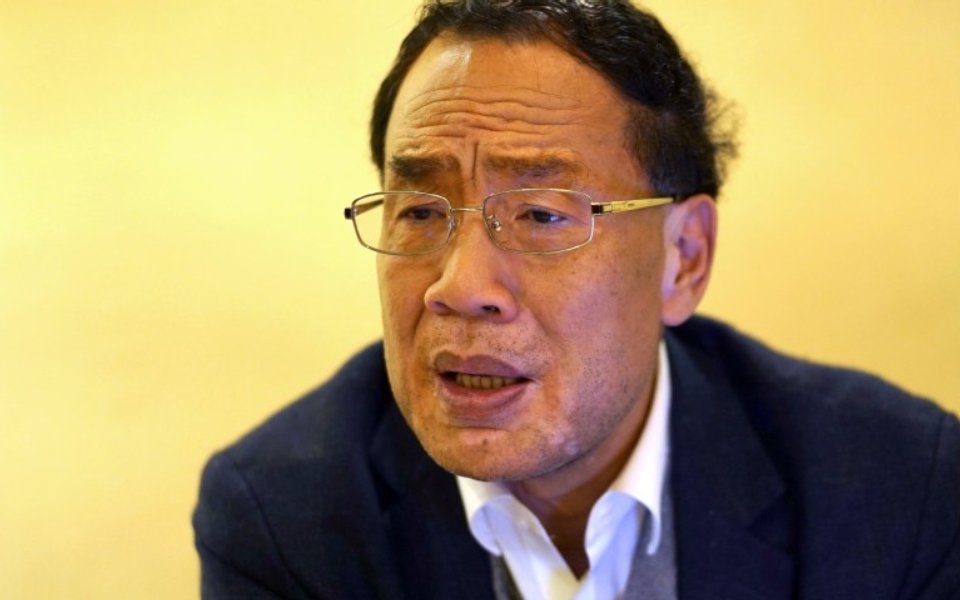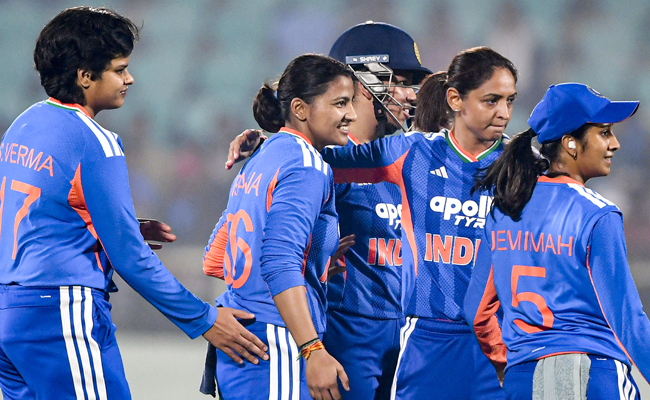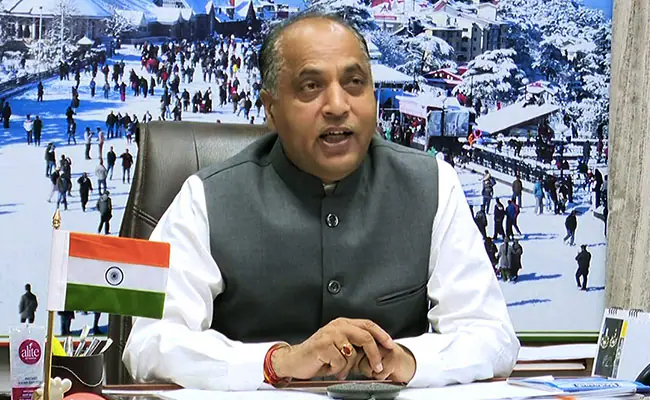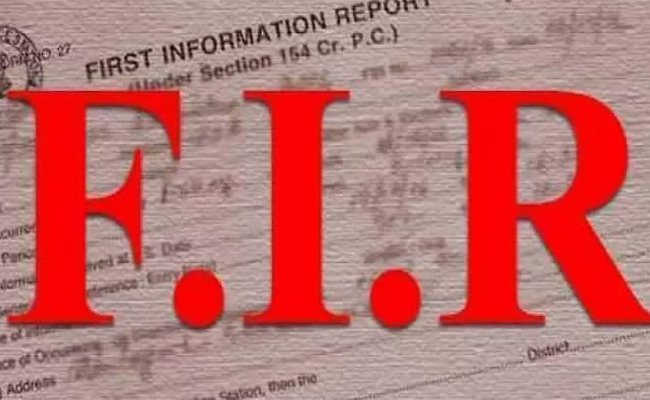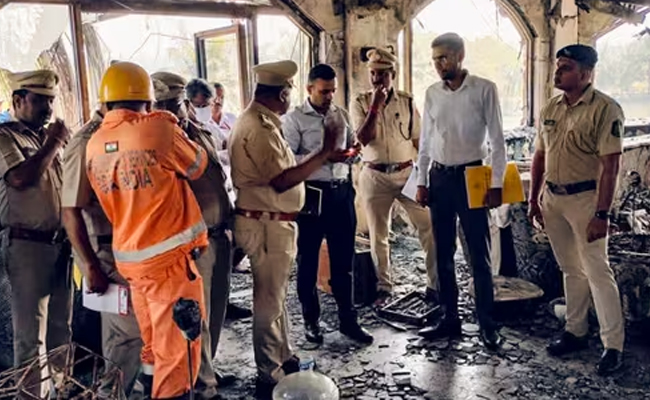Shanghai, Apr 30: The first scientist to publish a sequence of the COVID-19 virus in China staged a sit-in protest outside his lab after authorities locked him out of the facility — a sign of the Beijing's continuing pressure on scientists conducting research on the coronavirus.
Zhang Yongzhen wrote in an online post Monday that he and his team had been suddenly notified they were being evicted from their lab, the latest in a series of setbacks, demotions and ousters since the virologist published the sequence in January 2020 without state approval.
When Zhang tried to go to the lab over the weekend, guards barred him from entering. In protest, he sat outside on flattened cardboard in drizzling rain, pictures from the scene posted online show. News of the protest spread widely on Chinese social media and Zhang told a colleague he slept outside the lab — but it was not clear Tuesday if he remained there.
"I won't leave, I won't quit, I am pursuing science and the truth!” he wrote in a post on Chinese social media platform Weibo that was later deleted.
In an online statement, the Shanghai Public Health Clinical Center said that Zhang's lab was being renovated and was closed for “safety reasons.” It added that it had provided Zhang's team an alternative laboratory space.
But Zhang wrote online that his team wasn't offered an alternative until after they were notified of their eviction, and that the lab offered didn't meet safety standards for conducting their research, leaving his team in limbo.
Zhang's latest difficulty reflects how China has sought to control information related to the virus: An Associated Press investigation found that the government froze meaningful domestic and international efforts to trace it from the first weeks of the outbreak. That pattern continues to this day, with labs closed, collaborations shattered, foreign scientists forced out and Chinese researchers barred from leaving the country.
When reached by phone on Tuesday, Zhang said it was “inconvenient” for him to speak, saying there were other people listening in. In an email Monday to collaborator Edward Holmes seen by AP, Zhang confirmed he was sleeping outside his lab after guards barred him from entering.
An AP reporter was blocked by a guard at an entrance to the compound housing Zhang's lab. A staff member at the National Health Commission, China's top health authority, said by phone that it was not the main department in charge and referred questions to the Shanghai government. The Shanghai government did not immediately respond to a request for comment.
Zhang's ordeal started when he and his team decoded the virus on Jan. 5, 2020, and wrote an internal notice warning Chinese authorities of its potential to spread — but did not make the sequence public. The next day, Zhang's lab was ordered temporarily shut by China's top health official, and Zhang came under pressure by Chinese authorities.
Around the time, China had reported several dozen people were being treated for a respiratory illness in the central city of Wuhan. Possible cases of the same illness had been reported in Hong Kong, South Korea and Taiwan involving recent travelers to the city.
Foreign scientists soon learned that Zhang and other Chinese scientists had deciphered the virus and called on China to release the sequence. Zhang published it on Jan. 11, 2020, despite a lack of government permission.
Sequencing a virus is key to the development of test kits, disease control measures and vaccinations. The virus eventually spread to every corner of the world, triggering a pandemic that disrupted lives and commerce, prompted widespread lockdowns and killed millions of people.
Zhang was later awarded prizes in recognition for his work.
But Zhang's publication of the sequence also prompted additional scrutiny of his lab, according to Holmes, Zhang's collaborator and a virologist at the University of Sydney. Zhang was removed from a post at the Chinese Center for Disease Control and Prevention and barred from collaborating with some of his former partners, crippling his research.
“Ever since he defied the authorities by releasing the genome sequence of the virus that causes COVID-19 there has been a campaign against him,” Holmes said. “He's been broken by this process and I'm amazed he has been able to work at all.”
Let the Truth be known. If you read VB and like VB, please be a VB Supporter and Help us deliver the Truth to one and all.
Visakhapatnam (PTI): Shafali Verma hit a blistering unbeaten 69 as India made short work of a paltry target to outclass Sri Lanka by seven wickets in the second Women’s T20 International here on Tuesday.
India now lead the five-match series 2-0 after another one-sided victory, having restricted Sri Lanka to a modest 128 for 9 through a collective display of disciplined bowling from the spin trio of seasoned Sneh Rana, ably complemented by young spinners Vaishnavi Sharma and Shree Charani.
During the chase, vice-captain Smriti Mandhana (14) fell cheaply but Shafali, enjoying new found confidence after a stellar show in the World Cup final, sent the bowlers on a leather-hunt during her 34-ball knock, winning it for her team in just 11.5 overs.
The hosts have now completed back-to-back successful chases within 15 overs which speaks volumes about the unit's sky-high confidence.
Shafali's innings had 11 punchy boundaries apart from a maximum.
The floodgates opened when left-arm spinner Inoka Ranaweera bowled a few flighted deliveries and Shafali would step out everytime to hit her over extra cover. Her footwork against slow bowlers was immaculate whether stepping out to loft the ball or rocking back to punch or pull.
Seeing her confidence, the newly appointed Delhi Capitals skipper Jemimah Rodrigues (26 off 15 balls) also attacked as the duo added 58 runs in just 4.3 overs.
By the time Rodrigues was out trying to hit one six too many, the match as a contest was over. Shafali completed her half-century off just 27 balls and completed the formalities in a jiffy.
Earlier, off-spinner Rana, who got a look-in after Deepti Sharma was ruled out due to fever, showed her utility keeping the Lankan batters under tight leash with figures of 1 for 11 in 4 overs, including a maiden which certainly is a rarity in T20 cricket.
Charani, who made an impression during India's ODI World Cup triumph, took 2 for 23 in her quota of overs, while Vaishnavi after an impressive debut in the opening encounter, finished with 2 for 32, not letting the Islanders get easy runs in her second spell.
The last six wickets fell for just 24 runs, but what stood out during India’s bowling effort was their superb ground fielding. After a patchy show in the previous game, the improved sharpness in the field resulted in three run-outs.
Sri Lankan skipper Chamari Athapaththu (31 off 24 balls) looked in good nick as she deposited length deliveries from seamers Kranti Gaud and Arundhati Reddy over the ropes but it was Rana, who kept her quiet by repeatedly pitching on good length.
Unable to manoeuvre the strike and with the big hits suddenly drying up, Athapaththu chanced her arm at another delivery in which Rana had shortened the length slightly.
Not having transferred the weight into the lofted shot, Athapaththu's hoick was pouched cleanly by Amanjot Kaur at long-off.
This was after Athapaththu's opening partner Vishmi Gunaratne (1) had offered a simple return catch to Gaud.
Hasini Perera (22 off 28 balls) and Harshitha Samarawickrama (33 off 32 balls) did stitch a stand of 44 but they could never set the tempo against the Indian spin troika.
Once Hasini offered a tame return catch off a Charani full-toss, Sri Lankans never recovered and lost wickets in a heap towards the end.

